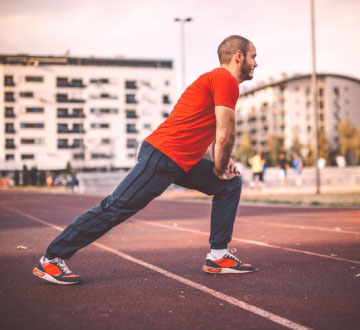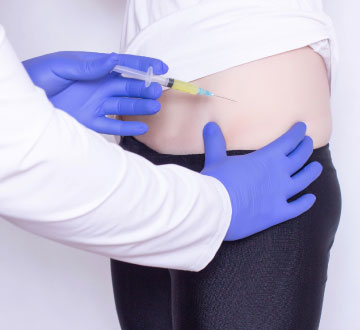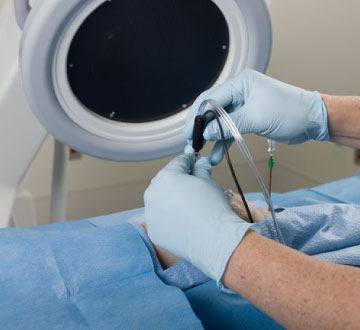Treatment Without Surgery
You and Dr. Chandrasekaran may decide there are some things you can do now to manage your pain without surgery.
What can I do now?

Lifestyle changes
Exercise may help. Talk with Dr. Chandrasekaran about the kinds of exercises that may strengthen the muscles around your hip and help reduce your pain. For people with mild or moderate osteoarthritis of the hip, certain exercises may help improve how they feel and help them postpone surgery.

Physical therapy
Physical therapists can help lessen your pain by teaching better posture or “form” for your day-to-day activities, like getting in and out of a chair. They can also teach you how to use assistive tools like a cane or walker so you can be more active with less stress on your hips. Your physical therapist may also recommend walking and strengthening exercises, depending on your anatomy, joint functioning, and disease progression.

Medication
Dr. Chandrasekaran may recommend over-the-counter or prescription anti-inflammatory medicines to help reduce the swelling and pain in your hip joint such as paracetamol and Non-steroidal anti-inflammatory drugs (NSAIDs), like ibuprofen.

Injections
Dr. Chandrasekaran may recommend injections to help treat your hip pain. These injections may help reduced inflammation (corticosteroids), provide additional lubrication (hyaluronic acid) and promote a healing response to damaged tissues (autologous conditioned plasma). Dr. Chandrasekaran will discuss whether which of these injections may be suitable to treatment your hip pain.

Coolief Radiofrequency ablation
Treating nerve pain around the hip may provide relief from hip pain or in the setting of ongoing pain despite a hip replacement. Dr. Chandrasekaran will discuss whether coolief radiofrequency ablation may be a suitable treatment for your hip pain.
